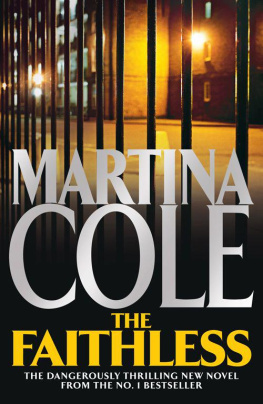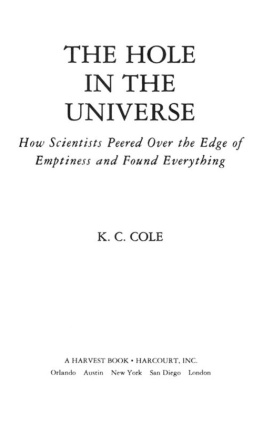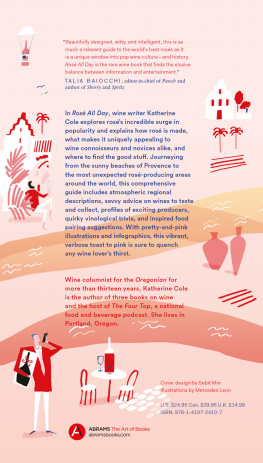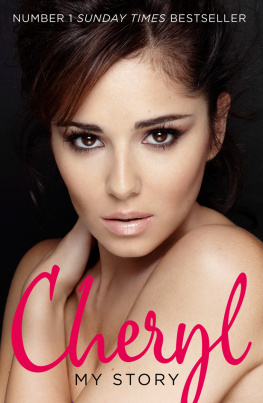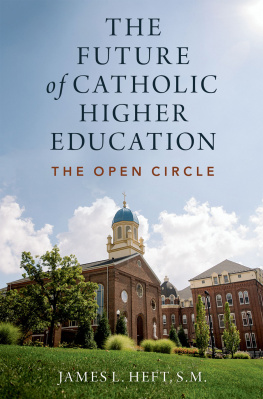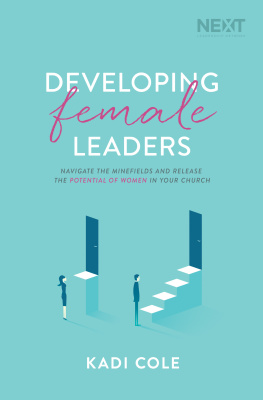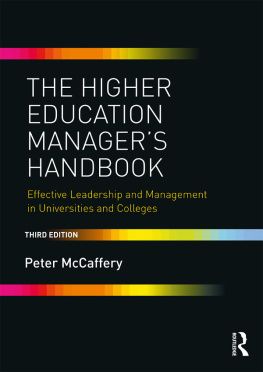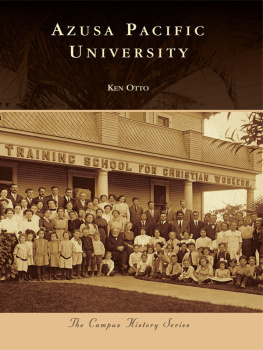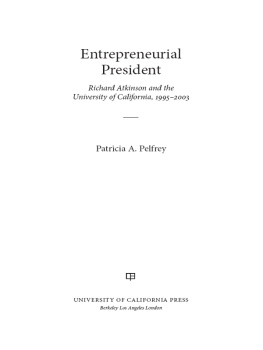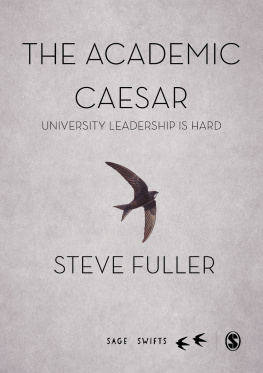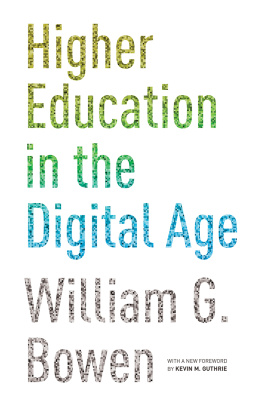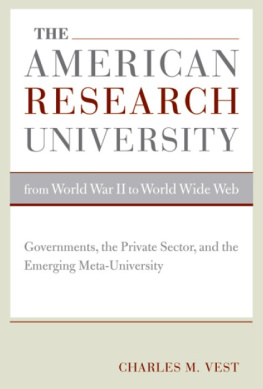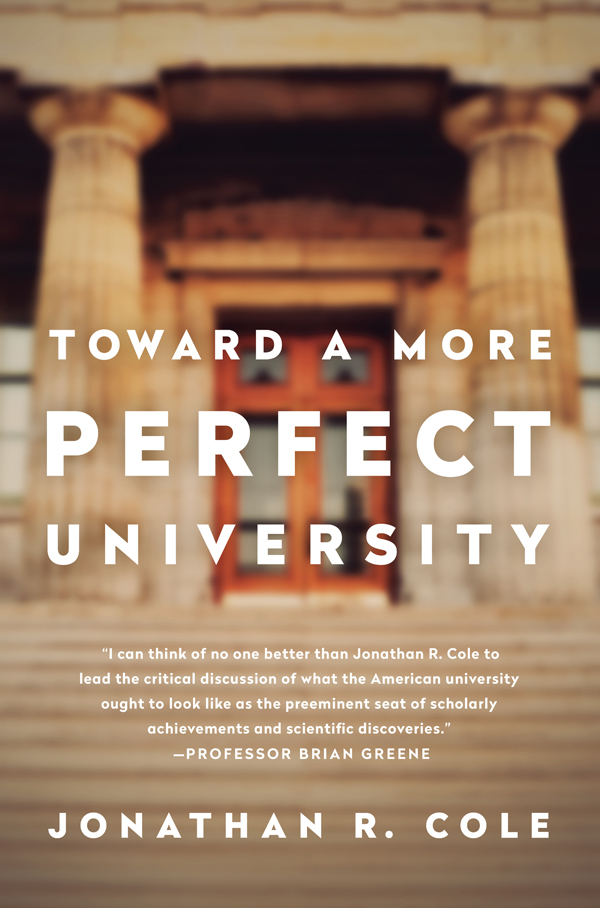Contents
Guide
ADDITIONAL PRAISE FOR
Toward a More Perfect University:
Eminently well-informed and pragmatic, Coles work not only offers a clear-eyed analysis of the current state of higher education in the US, it also provides a detailed starting point for dialogues about the function and shape of the great American universities of the future. An ambitious and visionary examination of American universities and how to develop them still further so that they may maximize their full potential.
Kirkus
Jonathan Coles new work is a magnificent description of the history, evolution, and rise to global preeminence of Americas research universities. With a mastery reflecting a deep understanding of the academic world, Jonathan unflinchingly confronts the challenges facing these institutions in an increasingly skeptical environment. He offers bold, sometimes provocative, innovative, and concrete proposals for insuring academic leadership for the United States. This is a must-read for those who care about our collective future.
MARY SUE COLEMAN , president emerita, University of Michigan, and president elect, Association of American Universities
Jonathan Cole brings to bear on the problem of higher educations future viability his years of experience as an education theorist and university leader. He calls for communities and institutions to address the roadblocks we all see in higher educationaccess and rising costs among themand to nurture the will to invest in and fortify the path of learning from pre-school to graduate school. Coles prescription is bold and imaginative and will compel the best minds to undertake the challenge he poses.
HENRY LOUIS GATES, JR., Alphonse Fletcher University Professor, Harvard University
In his new book, Toward a More Perfect University , Cole, a paragon of academic excellence and one of the preeminent writers and thinkers concerned with the strength and quality of American higher education, explores how todays universities can not only thrive but excel, while also expanding their ability to educate an increasingly diverse nation of men and women whose aspirations and abilities continue to be the engine of American progress. Toward a More Perfect University is an excellent addition to the study of the future of higher education in the United States.
VARTAN GREGORIAN, president, Carnegie Corporation of New York
In Toward a More Perfect University , Jonathan Cole describes challenges to the eminence of American universities, both present and future. In a lively and engaging manner, building on his rich experience and deeply analytic perspective, he discusses the circumstances that created the countrys great research universities and delineates proposals for change, presenting choices institutions of higher education must confront to continue to thrive as centers of learning, research, and innovation. His book should be of great interest not only to educators but to parents, civic leaders, and anyone with a stake in American higher education.
ROBERT J. ZIMMER , president, University of Chicago
Toward a More Perfect University

TOWARD
A MORE
PERFECT UNIVERSITY

Jonathan R. Cole

Copyright 2016 by Jonathan R. Cole
Published in the United States by PublicAffairs, a Member of the Perseus Books Group
All rights reserved.
Printed in the United States of America.
No part of this book may be reproduced in any manner whatsoever without written permission except in the case of brief quotations embodied in critical articles and reviews. For information, address PublicAffairs, 250 West 57th Street, 15th Floor, New York, NY 10107.
PublicAffairs books are available at special discounts for bulk purchases in the U.S. by corporations, institutions, and other organizations. For more information, please contact the Special Markets Department at the Perseus Books Group, 2300 Chestnut Street, Suite 200, Philadelphia, PA 19103, call (800) 810-4145, ext. 5000, or e-mail special.markets@perseusbooks.com.
Book Design by Milenda Nan Ok Lee
Library of Congress Control Number: 2015955566
ISBN 978-1-61039-265-5 (HC)
ISBN 978-1-61039-266-2 (EB)
First Edition
10 9 8 7 6 5 4 3 2 1
For Daniel and Nick, Nonnie and Gabe, Lydia and Charlotte, Joan, and of course Joanna
Contents
I N LATE S EPTEMBER 1960, when I first walked through the 116th Street and Broadway gates as a freshman at Columbia College, I was in awe of McKim, Mead, and Whites architecture. Could there really be such a beautiful and inspiring campus in the heart of New York City? I already knew something of Columbia and was apprehensive about how I, a jock with exceptionally good grades from a New York City public school, would fare in this intense intellectual environment. My older brother, Stephen, was entering his junior year there, and it was where my mother had studied for her Ph.D. in English Literature until my father, a stage, radio, and early television actor, had been blacklisted during the McCarthy era and the responsibility for supporting our family suddenly fell on her shoulders. Traversing the tree-lined College Walk, I thought of George Santayanas possibly apocryphal observation that when he walked the McKim campus he felt in the company of great minds. There was something inspiring about looking up at the facade of Butler Library and seeing carved in stone the names of Homer, Sophocles, Plato, Aristotle, Cicero, and Virgil, and those of Shakespeare, Milton, and Goethe, among many others whose work we would read in Columbias required Humanities course. I was one of around six hundred others who were entering a journey at Columbia College.
Of course, the place was hardly as idyllic as I made it out to be. When I entered the college, there were no women (Barnard was the womens college at Columbia), only two African Americansboth talented academics and athletes
The college was conspicuously local compared to its more famous sister cosmopolitan Ivy League institutions, Harvard, Yale, and Princeton. It was not even a fully residential college at the timecapable of housing only perhaps 50 percent of its undergraduate students. The rest found either off-campus apartments or commuted to school. Columbia College had its own proud faculty and undergraduates, and its students rarely took courses or seminars with professors with appointments in the graduate faculties. In fact, thick boundaries existed around each school. We all took roughly half of our total points required to graduate in the Core Curriculumand we could concentrate, rather than major, in a particular discipline. Legend had it that we had the best curriculum in the country (we knew next to nothing about what existed at other schools), taught by dedicated professors and instructors. We believed in the legend. We were immersed in and committed to a liberal arts education despite an equal dedication to a career that would represent upward social mobility.
What I wanted, as Woodrow Wilson said when speaking of his own education at Princeton, was to have the experience of rubbing up against other interesting minds. I quickly became an organized dilettante, taking courses with some of the extraordinary Columbia faculty regardless of their discipline, including Trilling, historian Richard Hofstadter, art historian Meyer Schapiro, sociologists Robert K. Merton and Daniel Bell, Nobel physicist Polykarp Kusch, and many others who were the stars of Columbia during those daysto say nothing of the younger, as yet relatively unknown, exceptional minds.



